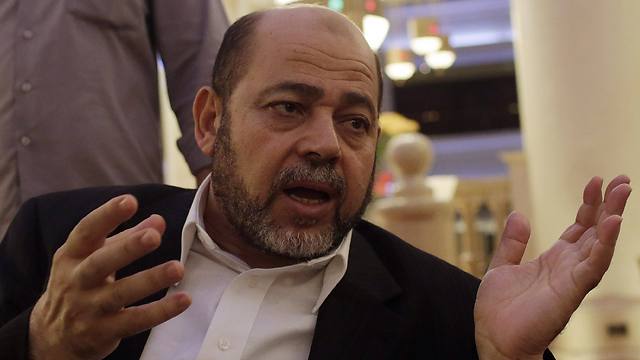As Hamas’ political wing moves for closer ties with the Saudis, terror group official Abu Marzouk, admitted Iran has withdrawn their support.
By Elior Levy
Senior Hamas official Mousa Abu Marzouk on Monday repeated a statement voiced by leaders before, saying that Iran has ceased providing most of its financial assistance to the group.

Mousa Abu Marzouk – Photo: Reuters
“The aid has stopped and it is still suspense – as was the military aid, whose absence is difficult to deal with, and aid to the residents of the Gaza Strip,” said Abu Mazouk.
Despite this, he emphasized that Hamas is working to retain close and robust relations with the Islamic Republic.
Abu Marzouk’s declaration came amid a crisis in Hamas-Iran relations, which began with the beginning of the Syrian Civil War over four years ago, when Hamas backed the rebels while Iran and Hezbollah supported Assad.
Relations have continued to cool, especially after Hamas began to improve relations with Iran’s major regional rival, Saudi Arabia.
Hamas chief Khaled Mashal is a great supporter of becoming closer to the Saudi axis, and most of the group’s political leadership agrees. The opposition to this process is led by Mohammed Deif and the group’s military wing, which desperately needs the financial assistance to rehabilitate and rearm itself after Operation Protective Edge.
The military wing is also interested in Iranian military aid – both military experts and attempts to smuggle weapons into the Gaza Strip. Deif has been sending delegates to various countries in the region in the hopes of defrosting relations with Iran and regaining the coveted assistance.
Some in Israel are well-aware of the internal divisions in Hamas about assistance from Iran. At the beginning of July, the Southern Command’s intelligence officer said that “the military wing turned to Iran to get financial assistance to allow it to build up ahead of the next campaign against Israel, in contrast to the general sentiment in the movement that prefers the Saudi axis to the Iranian one.
“These are sums the military wing will not get from the organization’s budget, and when there’s no alternative at home – they turn to the Iranians, who supply the money because they are first of all interested in a foothold against Israel in every possible sphere.”
View original Ynet publication at: http://www.ynetnews.com/articles/0,7340,L-4684713,00.html






 Israeli New Shekel Exchange Rate
Israeli New Shekel Exchange Rate